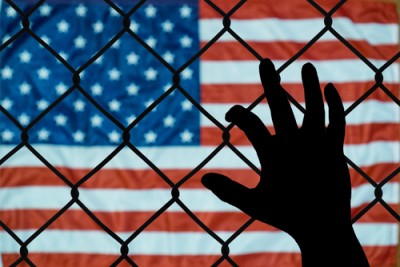Unaccompanied children are being deported without the hearings they are entitled to, ABA president says

Image from Shutterstock.com.
ABA President Judy Perry Martinez is urging the U.S. Department of Homeland Security to stop removing unaccompanied children without affording them their full rights under the William Wilberforce Trafficking Victims Protection Reauthorization Act of 2008.
In a letter sent to DHS Acting Secretary Chad Wolf on Friday, Martinez contended that the department has failed to implement removal proceedings under Section 240 of the Immigration and Nationality Act for unaccompanied children who were once in proceedings under the Migrant Protection Protocols, or “Remain in Mexico” policy.
She explains that under the Migrant Protection Protocols, individuals from noncontiguous countries who attempt to cross the border without documentation are returned to Mexico until they can appear before an immigration judge in the United States. She said that while unaccompanied children “are not supposed to be placed in MPP, families with children are subject to the policy.”
“Numerous press outlets have reported on asylum-seeking MPP parents who have made the difficult choice to send their children to the United States alone, in fear for their health and safety if they were to remain in Mexico,” Martinez said.
The Los Angeles Times recently featured a mother who waited in Mexico but decided to send her three children across the border after they endured sexual and physical assault. Even though they have been reunited with their father in Washington, D.C., American officials are threatening to deport them to El Salvador alone.
According to the article, U.S. Immigration and Customs Enforcement officials gave nearly 180 parents in custody in May the choice of separating from their children or remaining in detention with them. Even though several hundred other unaccompanied children are now with a sponsor in the United States, they still face the risk of being removed.
Martinez wrote in her letter that the TVPRA requires the DHS to place unaccompanied children from noncontiguous countries in removal proceedings and provide them access to counsel.
“These are just some of the many protections enshrined in the TVPRA to take into account the ‘specialized needs’ of UAC,” she said. “However, DHS is sending UAC with prior MPP removal orders back to their home countries without providing them with the process guaranteed by the TVPRA.”
Martinez added that the DHS recently removed two unaccompanied children who worked with the ABA’s South Texas Pro Bono Asylum Representation Project without first placing them in proceedings pursuant to the Immigration and Nationality Act. She said other young ProBAR clients “are in imminent danger of removal because of prior orders from MPP proceedings.”
“UAC are exempt from MPP precisely because they are particularly vulnerable and should not be required to navigate dangerous Mexican border cities and immigration courts alone,” Martinez said. “DHS is now removing these children to their home countries based on orders from proceedings that are inherently unfair, without giving them an individualized hearing in full section 240 proceedings, as Congress mandated through the TVPRA.”
Martinez also mentioned that the ABA has called on the DHS to end the Migrant Protection Protocols “because the implementation of the policy has prevented asylum-seekers from accessing a full and fair adjudication that comports with traditional notions of due process.”
In late January, she testified before the House Judiciary Committee’s Subcommittee on Immigration and Citizenship about problems with the policy.
See also:
ABAJournal.com: “SCOTUS allows remain-in-Mexico policy to continue during legal challenge”
Write a letter to the editor, share a story tip or update, or report an error.


